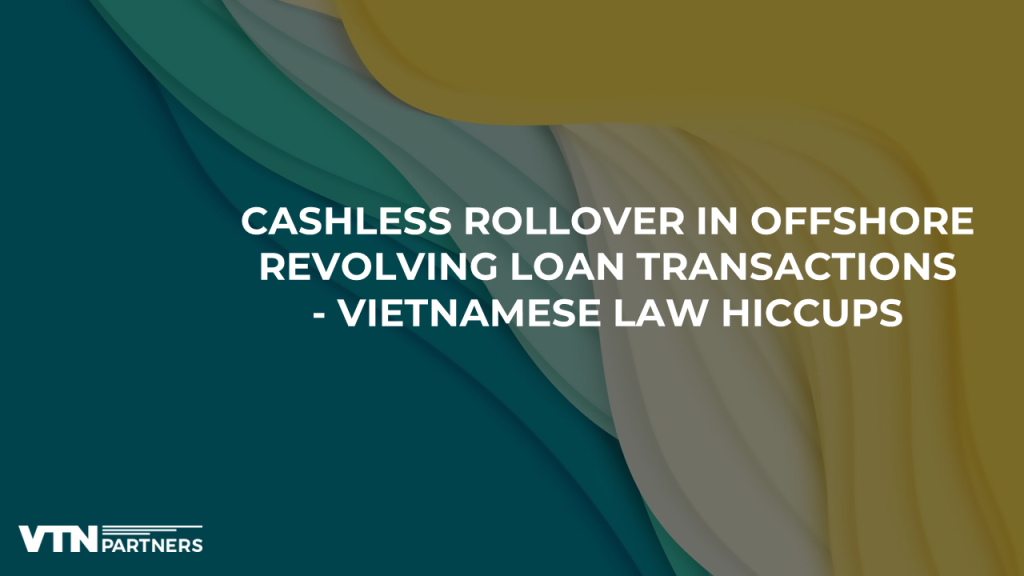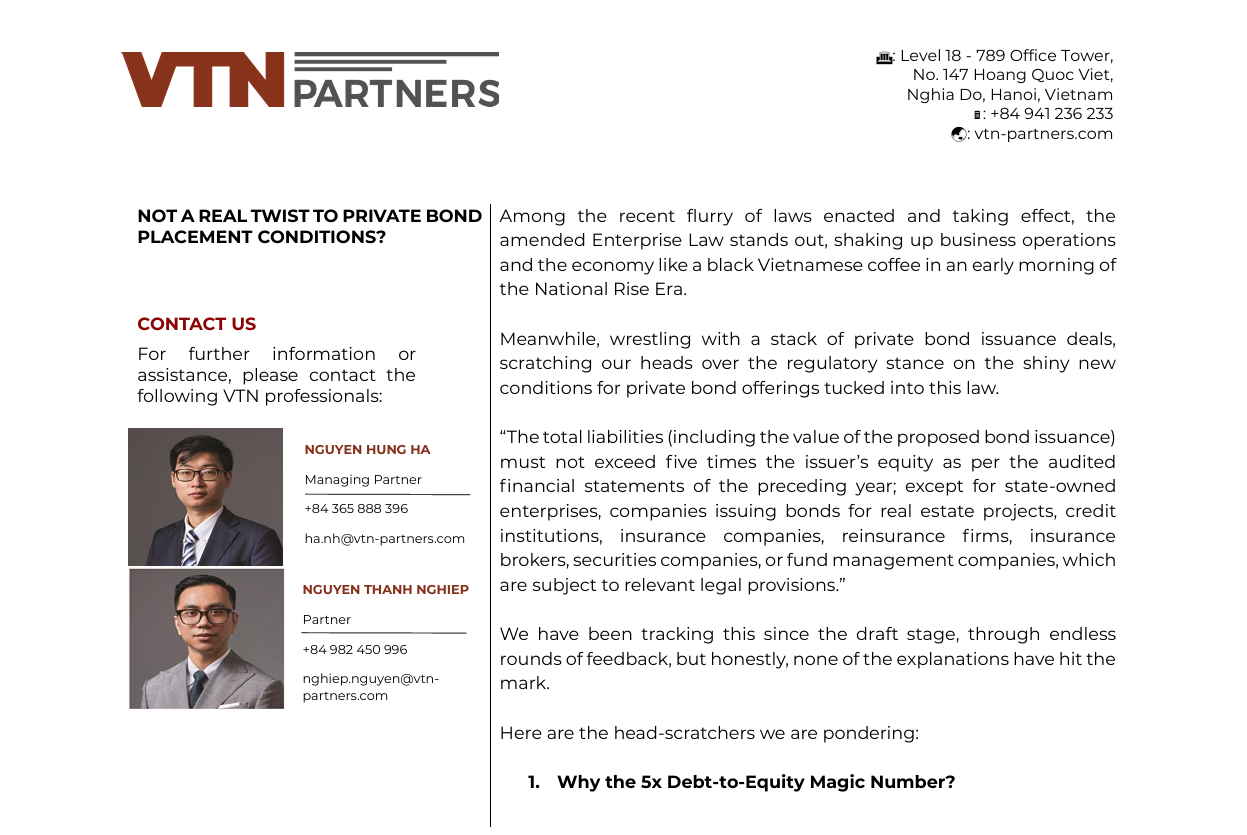This note is written by Mr. Nguyen Thanh Nghiep
In many revolving loan transactions with Vietnamese borrowers, instead of repaying the mature loan in full and reborrowing a new loan, the parties first always consider and follow the market practice of the cashless rollover. Following that structure, the parties agree to turn the maturing loan into a new loan (or new drawdown), in case the new drawdown amount exceeds the maturing loan, the difference will be disbursed and credited to the borrower’s foreign loan account. Otherwise, the amount of the new drawing less than the maturing loan will be repaid to the lender.
Under certain jurisdictions, this term of reborrowing may be feasible, however, from Vietnamese law perspective, non-financial institution borrowers will encounter several hiccups which we will discuss in this note.
In accordance with the cash flow transparency principle, all loan proceeds must be channeled through the foreign loan accounts maintained at licensed banks in Vietnam. In detail, Vietnamese law states that proceed transfer instructions in relation to the loan utilization and repayment, payment of interest, and fees for foreign loans must be clearly specified in terms of money transfer purposes in order for account service providers to have the basis for checking, examining and preserving records and conducting transactions.
The borrower shall be responsible for clarifying and requesting the lenders to specifically state the purpose of money transfer transactions relating to foreign loans as the basis for determining foreign debt obligations and transferring money to pay debts incurred from loans (principal, interest, fees, and other costs) on the maturity date.
The new drawing without cash running through the account may be a violation of the pertinent regulations and subject to an administrative penalty ranging from VND60 million – VND100 million.
Understanding the practice, the State Bank of Vietnam should be more open and loosen its firm grip on offshore borrowing activities to lure more capital into Vietnam.








